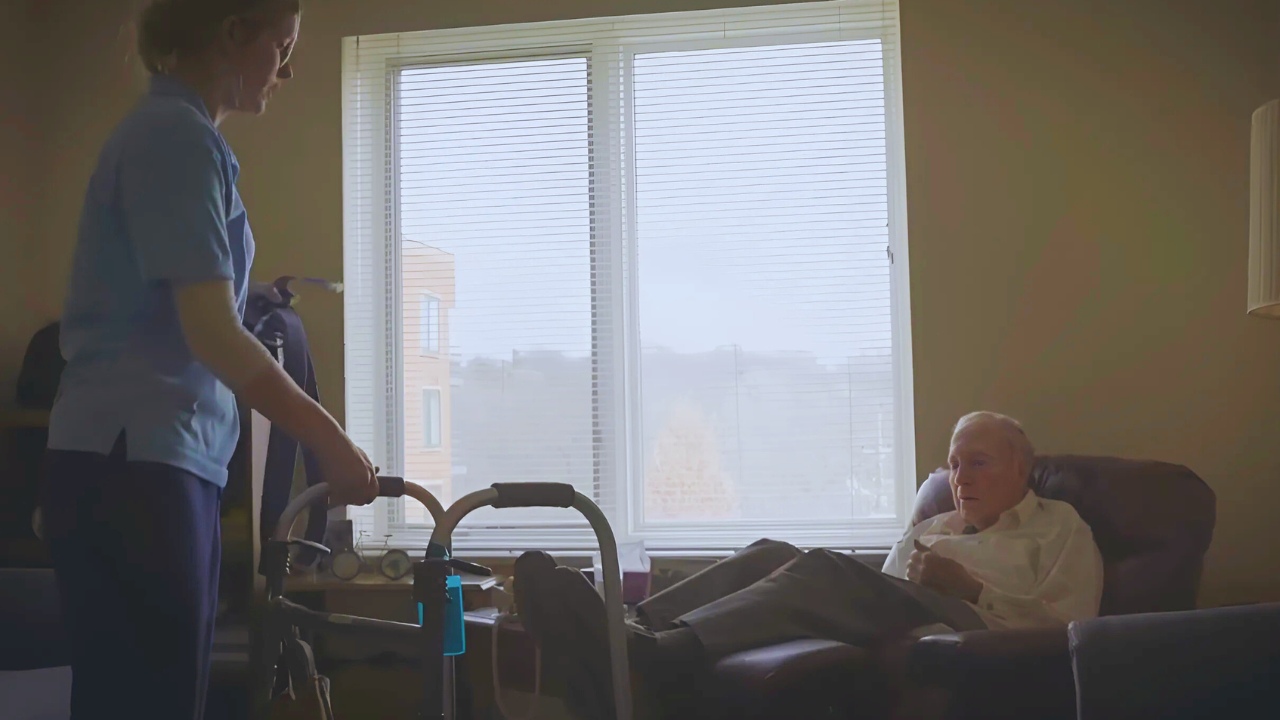Caregiver Burnout: Key Signs, Causes, and Prevention Tips

Author: Home Helpers Home Care
Caregiving is a rewarding action, but it also brings challenges. Over time, this mental, physical, and emotional strain can lead to “caregiver burnout." Many family and professional caregivers encounter burnout as they strive to balance caregiving with personal responsibilities. Recognizing the signs and causes of burnout can help caregivers find relief and maintain quality care.
This article explores caregiver burnout, including its signs, causes, and ways to prevent and manage it.
What is Caregiver Burnout?
Caregiver burnout is a state of emotional, mental, and physical exhaustion caused by prolonged caregiving without sufficient support. Both family and professional caregivers can experience burnout.
For instance, a family member caring for an elderly parent with mobility issues might feel overwhelmed. This constant need for help can eventually lead to burnout. Similarly, a professional caregiver working long shifts without adequate breaks may begin to experience emotional detachment from their role.
Common causes of burnout include long hours, limited support, and the emotional toll of handling daily challenges. When caregivers reach this point, the quality of care they provide may suffer. This is why it’s essential to recognize and address burnout early.
Common Signs and Symptoms of Caregiver Burnout
Recognizing the signs of caregiver burnout early can make a significant difference. Here are common symptoms caregivers may experience:
- Physical Fatigue: Constant tiredness, even after sleep, can indicate burnout. Feeling drained, caregivers may lack the energy to complete their daily tasks, leaving them sluggish as the day continues.
- Emotional Exhaustion: Burnout often leaves caregivers feeling emotionally depleted. They may feel less empathy, seem detached from the person they’re helping, or feel numb in situations that would normally prompt a response.
- Irritability and Frustration: Caregivers may feel increasingly frustrated over minor issues or changes in routine. Minor inconveniences might spark intense anger or frustration, showing the caregiver is emotionally overburdened.
- Feeling Overwhelmed and Hopeless: Burnout can lead to a sense of hopelessness or feeling trapped in the caregiving role. Caregivers may feel they’ve lost control over their lives, which can increase stress and anxiety about their duties.
- Social Withdrawal: Caregivers may start isolating themselves, avoiding social interactions, and losing interest in activities they once enjoyed. This withdrawal often happens because they feel too tired to engage or think others won’t understand their experience.
- Changes in Appetite and Sleep Patterns: Burnout can cause drastic changes in eating habits and sleep. Some caregivers may experience insomnia, while others may sleep excessively as a way to cope. Similarly, stress-eating or loss of appetite are common signs.
- Frequent Illnesses: A compromised immune system is another warning sign of burnout. Caregivers may become more prone to colds, headaches, and other illnesses as their body struggles with ongoing stress.
- Reduced Quality of Care: Burned-out caregivers may unintentionally skip or hurry through tasks, feeling less attentive and compassionate. They may find themselves missing important details or feeling disengaged from the care they are providing.
Recognizing these signs helps caregivers take early action to find support and manage stress, preventing more severe burnout.
Factors Contributing to Caregiver Burnout
Several factors increase the risk of burnout, creating challenges that can wear down even the most dedicated caregivers:
- Long Hours and Physical Demands: Extended hours without breaks can cause physical exhaustion. Lifting, assisting, and managing daily tasks create significant strain, especially without respite care services.
- Lack of Support and Isolation: Many caregivers feel isolated, managing duties alone without a support from family, friends, or caregiver support groups. This isolation adds stress and can worsen symptoms of caregiver burnout.
- Emotional Strain of Watching Decline: Family caregivers experience sadness and helplessness as they see their loved ones' health worsen. These feelings build over time and can harm both their physical and emotional health.
- Personal Health Sacrifices: Caregivers tend to put others’ needs above their own. This delay in self-care—like doctor visits, exercise, and healthy eating—can harm their physical health and increase burnout.
- Financial Pressure: Many family caregivers reduce work, miss job opportunities, or cover care costs themselves, increasing their financial burden.
- Absence of Personal Time and Self-Care: Caregivers often give up personal time for hobbies, social activities, or relaxation. This lack of self-care leaves them with little time to recharge, making it difficult to cope with the demands of caregiving.
These factors increase the risk of burnout. Caregivers benefit from accessing support, setting boundaries, and finding ways to cope healthily.
Strategies to Prevent and Manage Caregiver Burnout
Taking proactive steps can help caregivers manage burnout and sustain their well-being. Here are essential strategies to support sustainable caregiving:
- Set Boundaries and Know Your Limits: Recognize your personal limits to avoid taking on too much. Setting clear boundaries around caregiving hours helps reduce stress and prevents burnout.
- Prioritize Self-Care: Practice self-care. Regular exercise, balanced meals, and adequate sleep are essential. Engaging in hobbies or relaxation activities like meditation helps rejuvenate and strengthen resilience.
- Seek Support: Lean on family, friends, or caregiver support groups. Sharing experiences and getting advice from others in similar situations can reduce isolation and provide comfort.
- Use Respite Care: Take breaks by using respite care services, allowing you time to rest and recharge. Short breaks can make a significant difference in avoiding burnout.
- Practice Mindfulness and Stress-Relief: Techniques like deep breathing, journaling, or meditation can help manage stress. Practicing mindfulness even briefly each day can improve emotional well-being.
- Stay Organized: Use schedules or task lists to manage time efficiently. Prioritizing tasks helps you balance responsibilities, making caregiving more manageable.
These strategies are vital for managing caregiver burnout, allowing caregivers to stay healthy and keep giving quality care. Taking proactive steps can prevent burnout from impacting both the caregiver and those under their care.

Conclusion
Caregiver burnout can be a huge challenge may it be for family caregivers or professionals. However, using support and self-care strategies can help manage it effectively. To maintain well-being, caregivers can take proactive steps and set boundaries. Seeking help from in-home care services can also make a difference.
Managing burnout benefits both the caregiver’s well-being and the quality of care provided to loved ones.
At Home Helpers Home Care of Bradenton, we’re here to give family caregivers the support they need for a better quality of life. Our caring in-home services help both caregivers and their loved ones feel safe and comfortable. We work to ease the load, so caregivers can focus on their health, knowing their loved ones are well cared for.
